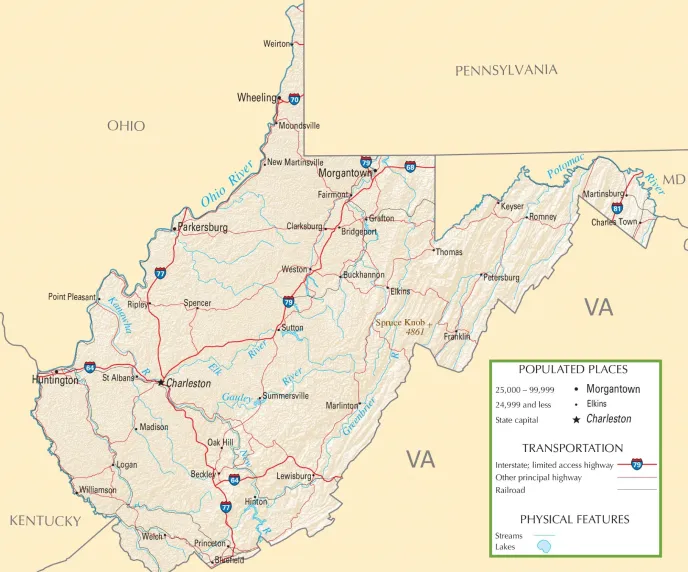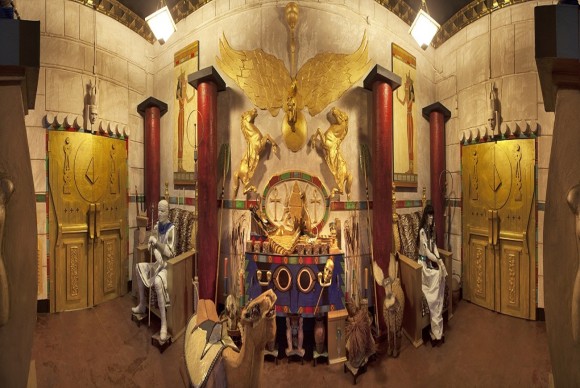Listening to West Virginia

Image courtesy of ontheworldmap.com.
What does “boots on the ground” humanities work actually look like? What does it look like in a small state beset with monumental problems? A state trying to reimagine itself into a post-extractive-industry reality?
When West Virginia University (WVU) established its Humanities Center in 2017, its founders tackled those questions by forming a community affiliate program to create and foster relationships with organizations and individuals doing humanities work around West Virginia. What could WVU offer community affiliates? Former Director Ryan Claycomb and his advisory board identified resources like library access, speakers and speaker exchanges, networking opportunities, and assistance with grant-writing. All of these have been valuable to affiliates. But they were ideas generated within the walls of the university. What other resources did communities in West Virginia really want and need?
WVU, located on the state’s northern border with Pennsylvania, is geographically isolated from most of the state. Further, reflecting trends across the United States, the ideological divide between the university and much of our rural state has widened in recent years. West Virginia is also a state that has been subject to, and sometimes victim of, “outside help” for many decades. Outside help has tended to swoop in, identify problems, and impose solutions without listening to local people articulate their own needs, concerns, experiences, and ideas. Consequently, outside help has bred quite a bit of skepticism and suspicion among many West Virginians.
For all these reasons, the Center decided to go out into communities and simply listen for a while. Genuinely listen.
Before I hit the road, I took some time to ask myself what genuine listening entailed. I decided it was important that I arrive at my destinations without an agenda. I’d introduce myself and explain briefly the work of the Humanities Center and its mission. I’d offer a few examples of ways we were working with communities. Then, I’d just let people talk. In other words, I told myself to do that thing most of us academics don’t always do that well: sit down, and well, shut up.

Drawing on my personal contacts in the southeastern corner of the state (one of the most depressed regions in Appalachia), I snaked my way along West Virginia roads to discover organizations I’d had no idea existed. I found the extraordinary folks at Gary Bowling’s House of Art in Bluefield, WV, who were rehabilitating an architecturally significant former school into a history museum and a spectacular art installation space. I spent a morning at Treetop Co-op, a cluster of early 20th century houses on the rim of the New River Gorge poised for restoration into a thinkers’, writers’, and artists’ retreat. Altogether I listened to six different organizations, engaging in conversations that ranged from fifteen minutes to three hours long. I didn’t record or video people so they’d feel comfortable. If we were sitting still, I took notes on my laptop. When we were walking through spaces or driving, I used a pen and pad. I heard many accounts of people’s disillusionment with institutions in general. I heard the strategies they’d developed for working around limitations imposed by local industries and state and local governments. I did indeed learn of new ways the Humanities Center might extend support: publicity for the organizations and their events, connections with WVU academics with relevant expertise, and co-sponsored celebrations for historical anniversaries, to name a few.
I made this trip in late 2019, before travel restrictions, but I hope my experience offers a model and some inspiration for humanities work when we’re able to move freely again and meet face-to-face. In the meantime, videoconferencing may be an alternative, although I do believe talking in-person was very important for creating relationships.
I had to accept that this kind of listening—without a specific project in mind—was valuable but not necessarily “time-efficient.” I had to value it as a long-term and open-ended investment. I had to hit some dead-ends and weather some failures. This kind of listening requires patience, flexibility, and humility. But it also gave me, most importantly, a deep, in-the-body understanding of how humanities and arts communities in West Virginia are passionately and, at times, heroically imagining new ways of being for our state. Genuine listening by people affiliated with universities to people who aren’t is, without a doubt, one step towards narrowing our nation’s social and political divides.
Ann Pancake is Writer-in-Residence at the West Virginia University Humanities Center.
Learn how to contribute to the Humanities for All blog here.